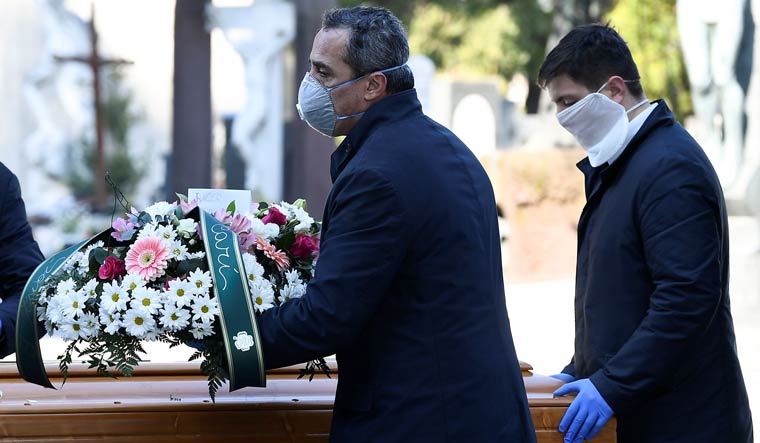British Prime Minister Boris Johnson on Monday began putting in place stringent social distancing measures in a bid to control the spread of novel coronavirus (COVID-19) in the UK. Among the measures was advice for those over 70 years of age to self-isolate, given the vulnerability of the aged to COVID-19.
According to Reuters, Johnson was prompted to act after being presented findings of a projection study by a team at Imperial College in London. The Imperial College team, led by Neil Ferguson, a professor of mathematical biology, used data from Italy, which has been reeling under the novel coronavirus pandemic.
The study notes, "in an unmitigated epidemic, we would predict approximately 510,000 deaths in Great Britain and 2.2 million in the US, not accounting for the potential negative effects of health systems being overwhelmed on mortality".
The Imperial College study compares the scale of the COVID-19 pandemic, with no vaccines being available, to the H1N1 influenza pandemic of 1918. The 1918 pandemic caused approximately 50 million deaths worldwide.
The study predicts that ICU bed capacity would be exceeded in both the US and UK by the second week of April and demand for ICU beds could be over 30 times the maximum supply in both countries.
Giving the most optimistic scenario, where the "most effective mitigation strategy" is used and "a single, relatively short epidemic" occurs, the demand for both general and ICU beds would surge eight times, the Imperial College study notes. In addition, “even if all patients were able to be treated, we
predict there would still be in the order of 250,000 deaths in Great Britain, and 1.1-1.2 million in the US," the study notes.
Ferguson told The New York Times that the Imperial College team had shared its projections with the White house.
The study points an ominous picture of the road ahead, noting the only method having the "largest impact" against the novel coronavirus outbreak, short of a complete shutdown, would be "social distancing of the entire population, case isolation, household quarantine and school and university closure".
The Imperial College study notes, "A minimum policy for effective suppression is therefore population-wide social distancing combined with home isolation of cases and school and university closure. To avoid a rebound in transmission, these policies will need to be maintained until large stocks of vaccine are available to immunise the population– which could be 18 months or more."
The Imperial College study emphasises, that it is “not at all certain that suppression will succeed long term; no public health intervention with such disruptive effects on society has been previously attempted for such a long duration of time. How populations and societies will respond remains unclear".


